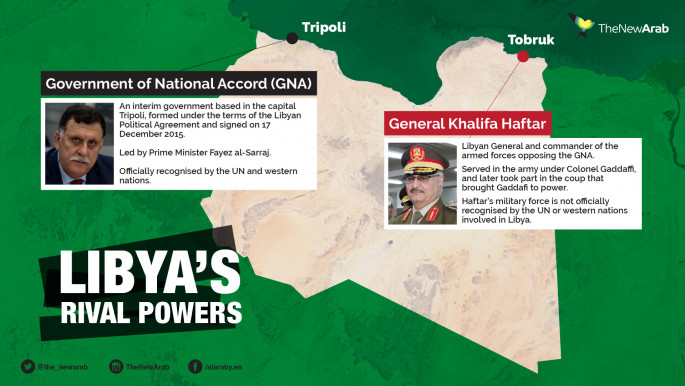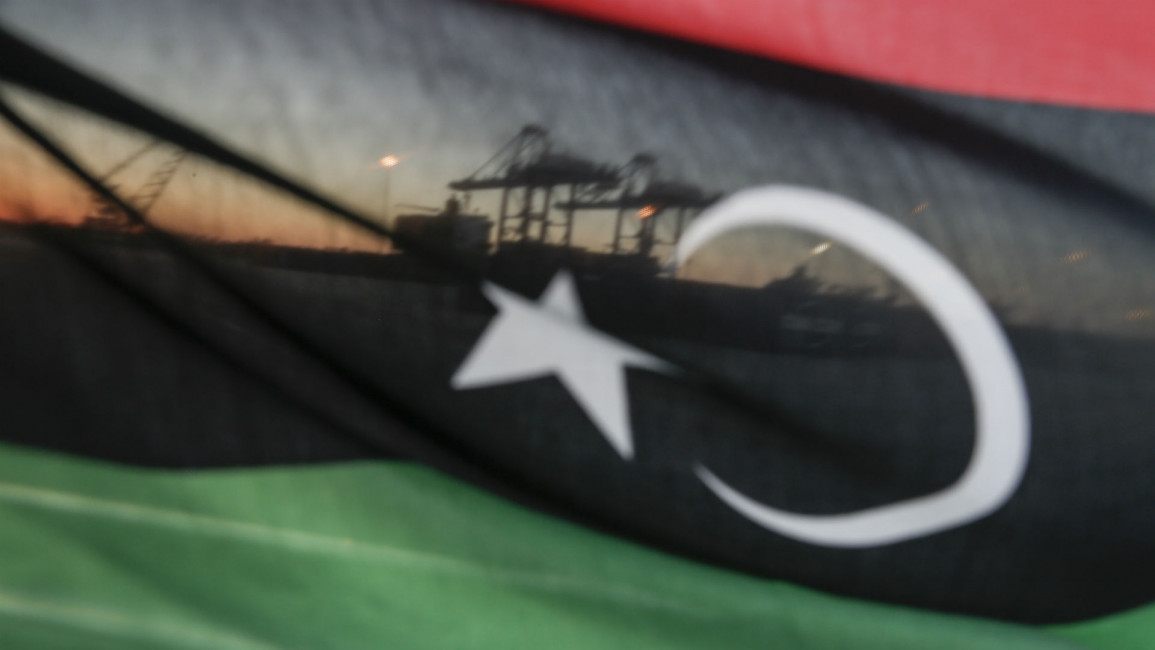Follow us on Twitter and Instagram to stay connected
Libya military school airstrike death toll reaches 30
The airstrike hit late on Saturday in the Hadaba area, just south of the city centre, the health ministry of the Tripoli-based government said.
The ambulance service in Tripoli said the airstrike also wounded at least 33 people. It posted images of dead bodies and those wounded being treated at a hospital.
The UN Support Mission in Libya condemned in “the strongest terms” the attack and warned in a statement against "growing escalation” of violence.
Libya is governed by rival authorities in the east and in Tripoli in the west, with each relying on different militias. Eastern Libyan forces led by warlord Khalifa Haftar launched an offensive in April to take the capital from the weak but UN-supported government.
Fighting and shelling between the two sides has been raging for months in the area.
The UN-supported Libyan government blamed the airstrike on Haftar's self-styled Libyan National Army. A spokesman for the LNA did not respond to phone calls seeking comment.
Haftar declared a “final” and decisive battle for the capital, which was shortly followed with a military and maritime agreement signed between Tripoli and its ally Turkey, calling for the deployment of Turkish troops to Libya.
Turkey’s parliament on Thursday authorised sending forces to Libya to support Tripoli authorities in a move that was condemned by Libya's eastern-based parliament and other regional and world powers.
Ghassan Salame, the UN envoy to Libya, said Turkish troops on the ground would further diminish chances for ending the violence.
Salame expects the warring Libyan groups to meet for peace talks in Germany in mid-January.
Haftar's siege has killed hundreds of people, mostly combatants, and displaced thousands of families in Tripoli and the surrounding areas.
The conflict threatens to plunge Libya into levels of chaos rivalling the 2011 uprising that ousted and later killed its ruler Muammar Gaddafi.
France, Egypt, Russia, Jordan, the United Arab Emirates and other key Arab countries support Haftar and his allies in the east, while the Tripoli-based government is backed by Qatar, Italy and Turkey.
Last month, UN experts in a report to the UN Security Council said that “Jordan, Turkey and the United Arab Emirates routinely and sometimes blatantly supplied weapons, with little effort to disguise the source” in violation of the UN arms embargo.
They identified multiple cases of non-compliance with the arms embargo. The majority of weapons transfers to Haftar’s LNA came from Jordan or the United Arab Emirates, while the majority of military supplies to the Tripoli government came from Turkey, the report said.
The UN panel said neither side in Libya has “the military capability” to win the stalemated conflict.

![Trump's warm greeting to Netanyahu contrasted with Kamala Harris's critical reception [Getty]](/sites/default/files/styles/image_212x120/public/2024-07/GettyImages-2162908988.jpg?h=69f2b9d0&itok=uRh_9WXh)
![The brutal assault on Khan Younis has killed dozens and displaced thousands more [Getty]](/sites/default/files/styles/image_212x120/public/2024-07/GettyImages-2162526709.jpg?h=d3eda8cf&itok=HCP84AvQ)
![Members of the Algerian delegation threw roses into the Seine [Getty]](/sites/default/files/styles/image_212x120/public/2024-07/GettyImages-2162980872.jpg?h=199d8c1f&itok=PDhNyMBE)